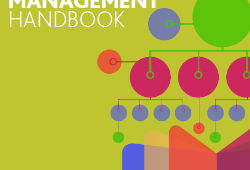Data management is certainly a hot topic of late but how is the industry to have a structured and meaningful discussion about it when there are so many issues to be covered? As I have noticed when chairing discussions on reference data topics at past events, it is very easy to get sidetracked by particular subjects, be it the suitability of XBRL or the ins and outs of a certain approach to customer data. So how, then, does one structure a bigger picture discussion on the subject?
Of course, I’m not asking this question for the sake of it; it’s with a view to structuring a meaningful discussion for my panel at this year’s Sibos in Amsterdam. The focus is on improving data quality across the industry overall for the benefit of both market participants and the regulatory community, but which out of the many initiatives that have been launched over the past year, are people interested in hearing about?
The European Central Bank’s (ECB) proposed utility has certainly provoked strong reactions from various corners of the industry, but beyond explaining the simple concept, the dialogue seems to have stalled. Given the Office of Financial Research’s impending creation in the US (however long it takes and however much it costs), perhaps these discussions will move on from theory to practicality? One has to hope so, for the sake of the US$500 million that is to be earmarked to pay for the running of the data collection agency.
Given the costs involved and the data security concerns raised by the US senators during their discussions about the Office of Financial Research, it is amazing that the mainstream press largely ignored the topic. I had to hunt high and low for any mention of the data collection agency plans and was able to turn up very little in the way of meaningful coverage (hence the requirement to sit through two hours of regulatory discussions just to bring you a précis of what was said).
However, regulatory led initiatives are not the only ones out there: commercially driven and industry led endeavours are also ongoing.
The EDM Council, for example, is looking into data quality and has established a working group to discuss the potential requirements for an industry wide data quality framework. The working group, which is chaired by Llew Nagle, who is in charge of global reference data change and data quality management at Barclays Capital, is keen to provide industry standard benchmarks for data quality using hard metrics such as losses related to erroneous data.
This is part of the desire, as voiced by Nagle back in February, to set standards before a utility is put in place. At the time, Nagle contended that it would be best for an industry led group to begin work on defining the basics of data quality and accordingly has since opted for the DIY route, along with a number of other willing data industry experts.
More information on the working group’s activities can be found on the EDM Council website here.
Last week, Reference Data Review also noted that think tank JWG is lobbying European regulators including the Committee of European Securities Regulators (CESR) to get a data rulebook on the agenda. Much like the EDM Council working group, the JWG led Customer Data Management Group (CDMG) is also working towards raising the profile of specific data issues within the market, this time directly with the regulatory community.
The group notes in its letter to CESR Tech, sent in May: “JWG and its members would like to help establish a constructive dialogue that enables the industry to establish these formats and identifiers together with a data policy in the form of a ‘data rulebook’. However, to get this started we need to develop a clear mandate, align priorities and publicise EU endorsement.”
Visit the JWG CDMG website for more information here.
Other industry initiatives include the lobbying of the data vendor community in order to bring down escalating costs (a topic that is seemingly even more important to practitioners than the utility discussions at the moment, for obvious reasons).
Moreover, there are also a catalogue of new initiatives on the part of these vendors to become more “open”, like Bloomberg, or to create their own version of a data utility, like SmartStream and SIX Telekurs.
Given this plethora of information, what are the priorities, then, for firms themselves in terms of interest? What would you like to hear discussed at Sibos? Are there any areas of development that you feel have been overlooked until now?
Subscribe to our newsletter




